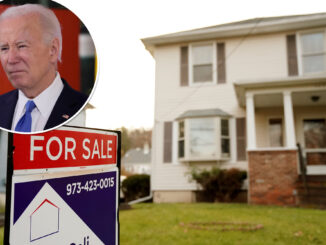
The housing priorities outlined by the White House and President Joe Biden last week before and during the State of the Union address are crucial for alleviating a serious burden facing many Americans, and the plan emphasizes actions that can be taken to impact the current housing market.
This is according to comments shared with the Urban Institute by Lael Brainard, the White House’s national economic adviser and director of the National Economic Council.
Road to the current market
Brainard began her comments by discussing some of the circumstances that led the housing market to its current status quo. This includes the pullback by homebuilders in the aftermath of the 2007-08 financial crisis, with “completions falling from a peak of 2 million units in 2006 to just 585,000 in 2011,” she said. “And housing construction never fully recovered after that.”
Combined with the millennial generation aging into the housing market and causing an unsustainable surge in demand, “construction over that decade skewed to higher value units rather than the starter homes needed for first-time homebuyers and workforce housing,” she said.
To that end, the White House has sought to facilitate more access to federal financing for builders, which has contributed to a recovery in construction activity. But “chronic underbuilding of housing over the past decade and a half means that we must build even more housing to meet demand and lower housing costs,” she said.
The housing plan
This is one of the reasons the Biden administration unveiled its housing plan and gave it a major platform during the State of the Union address last week, Brainard said. At the forefront of the administration’s proposals is a $10,000 tax credit for first-time homebuyers, amounting to about $400 a month for two years.
This would act as “the equivalent of reducing the mortgage rate by 1.5 percentage points for two years on the median home,” she said. “The mortgage relief credit would help more than 3.5 million middle-class families purchase their first home over the next two years.”
But the White House, Brainard explained, is not waiting for Congress to act on housing issues, as evidenced by a controversial proposal that would no longer require borrowers to purchase title insurance when refinancing their mortgage.
On top of other proposals introduced for renters, the president on Monday also said that the key to solving the nation’s housing problems is to bolster supply.
“The bottom line is we have to build, build, build,” Biden said on Monday at the National League of Cities’ Congressional City Conference in Washington, D.C. “That’s how we bring housing costs down for good.”
The president seeks an expansion of the Low Income Housing Tax Credit (LIHTC), which would “produce or preserve 1.2 million affordable units over the next decade,” Brainard explained. “The president’s plan represents the largest increase in LIHTC resources since 2000, which will help to address the shortage of affordable housing. LIHTC accounts for nearly all new federally funded affordable rental housing.”
Industry pushback
Biden also called on Congress to pass the Neighborhood Homes Tax Credit, “which would lead to the construction or preservation of over 400,000 starter homes,” she explained.
Recently, BTIG analyst Isaac Boltansky called Biden’s housing proposals “dead on arrival or troubling,” while the American Land Title Association (ALTA) slammed the administration’s plan to no longer require title insurance on some types of refinances.
Brainard contends that the administration’s plan is focused on the people who would most benefit from enhanced affordability.
“It lowers housing costs, increases access to affordable housing, and enables working families to build wealth and savings,” she said. “We look forward to working in partnership with all of you to meet this vital shared goal.”



